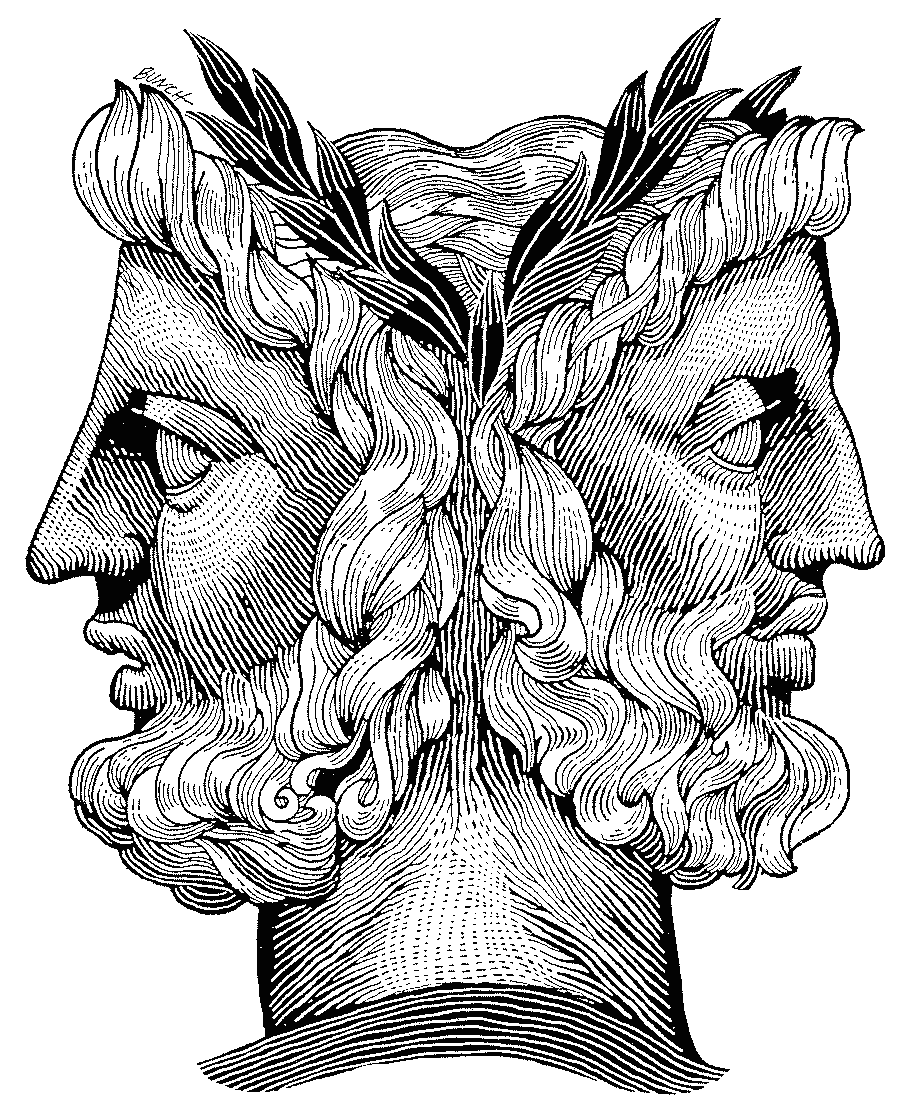
The ancient Romans had a
god for nearly everything. They even borrowed gods from other cultures and
invented new ones to add to their ever-expanding pantheon. Janus, the two-faced
god of gates and doorways, beginnings and endings, was just one of many idols the
Romans paid homage to. In antiquity, it was common for a bust of Janus to be perched
over doorways with one face looking forwards, while the other face looked
backwards. Of course, his most prominent contributions to modern culture are
his namesakes: the month of January, which begins the New Year, and the
janitor, who is a caretaker of doors and halls.

As we look back on the
past year and forward to what lies ahead in 2017 it is comforting to know that
we have a mighty God who is much more real and personal than the mythological
Janus. The God of the Bible sees infinitely through time in both directions.
Christ is the Divine Timekeeper who made time and is outside time the way an
author is both the writer of the narrative and transcendent to the book, or the
way a painter is unique from his painting.
Moses wrote of God’s
eternality in Psalm 90:2, “Before the mountains were brought forth, or ever you
had formed the earth and the world, from
everlasting to everlasting you are God.” Everything that has a beginning
has a cause, but God never began to exist, thus He needs no cause. As Aristotle
would say, God is the “Unmoved Mover” the “uncaused cause of all things.”
John spoke of the
pre-existent Christ in the prologue of his Gospel, “In the beginning was the
Word, and the Word was with God, and the Word was God . . . All things were made through him, and
without him was not any thing made that was made” (John 1:1, 3). Trying to
imagine a time when Jesus was not is like trying to picture a one-ended stick
or a squared circle. He made all things including this mysterious forth-dimension
of reality—time.
Finally, God spoke to the
prophet Isaiah, “I make known the end from the beginning, from ancient times,
what is still to come. I say: My purpose will stand, and I will do all that I
please (Is. 46:10).” Since God is not restricted by our time domain that means
He can make accurate pronouncements about the future, which is why fulfilled
prophecy one of the validating credentials of the Bible.
Before Genesis 1:1, there
was no time to speak of, only eternal God.
Before there was a Big Bang and before there was time, God existed
independently as an uncreated, uncaused being.
At the end of all things, when the final verses of Revelation have been
fulfilled and the new heavens and the new earth created, time will come to end,
yet God will still be there.
Eternality not only means that God is a timeless being, but that God sees all events from the past and
future with equal clarity. Perhaps an illustration is in order to help us grasp
on to this loft doctrine. C.S. Lewis likened God’s eternality to a sheet of
paper that extended infinitely in both directions. He suggested that we take a
pencil and draw on that paper a short line segment representing time, for just
as that line begins and ends on that infinite piece of paper, so time finds its
beginning and end in God. He’s already lived all of our tomorrows, just as He’s
lived all of our yesterdays, for He has no past or future. Instead, He lives in
an everlasting now.[1]

God is the great keeper of
time and eternity. Not only does He know the beginning from the end, but
everything in between moves in accordance with His sovereign will. It’s comforting to know that even though we
don't know what the future holds we know the One who holds the future. As you begin this new year make a commitment
to trust God with the unknown road ahead.
As King George VI of England once said “Put your hand in the hand of God
and it shall be better than the light and safer than the known.” Happy New
Year! –DM
No comments:
Post a Comment